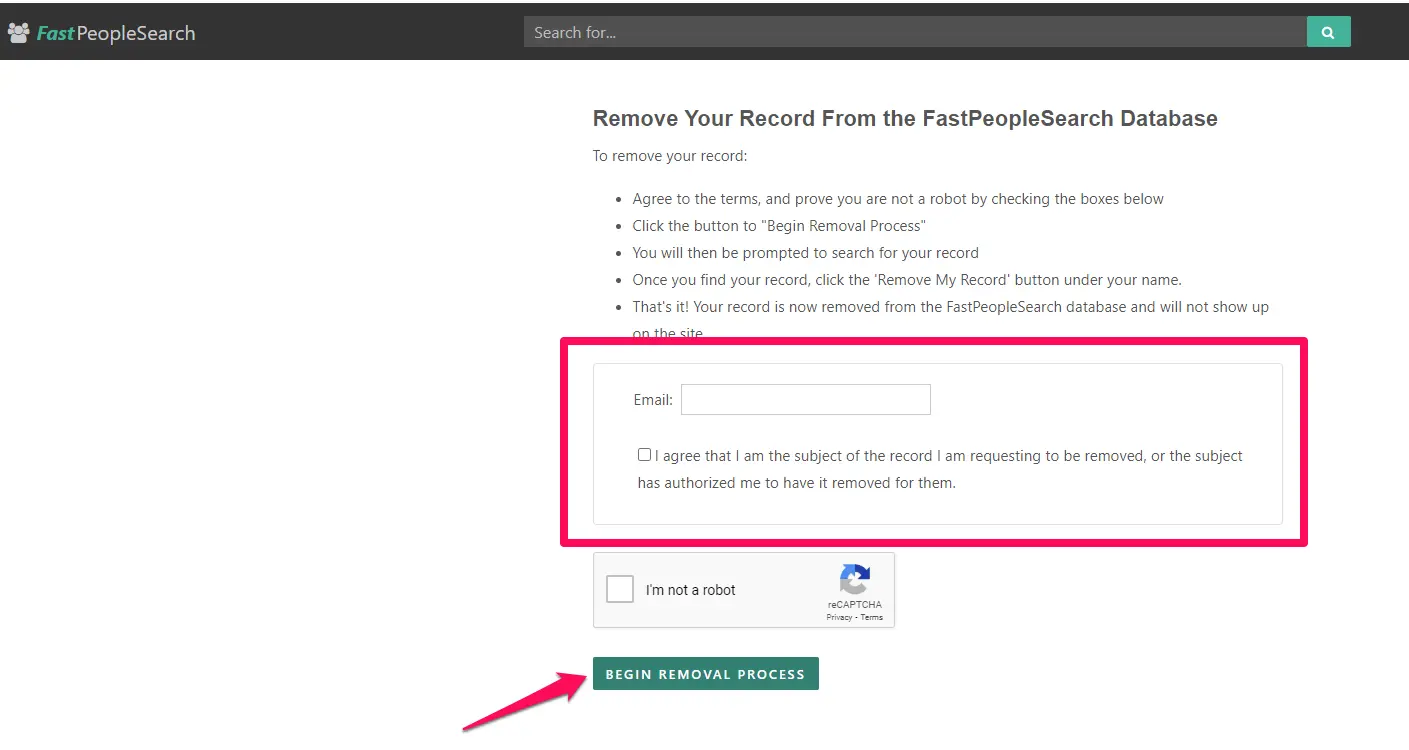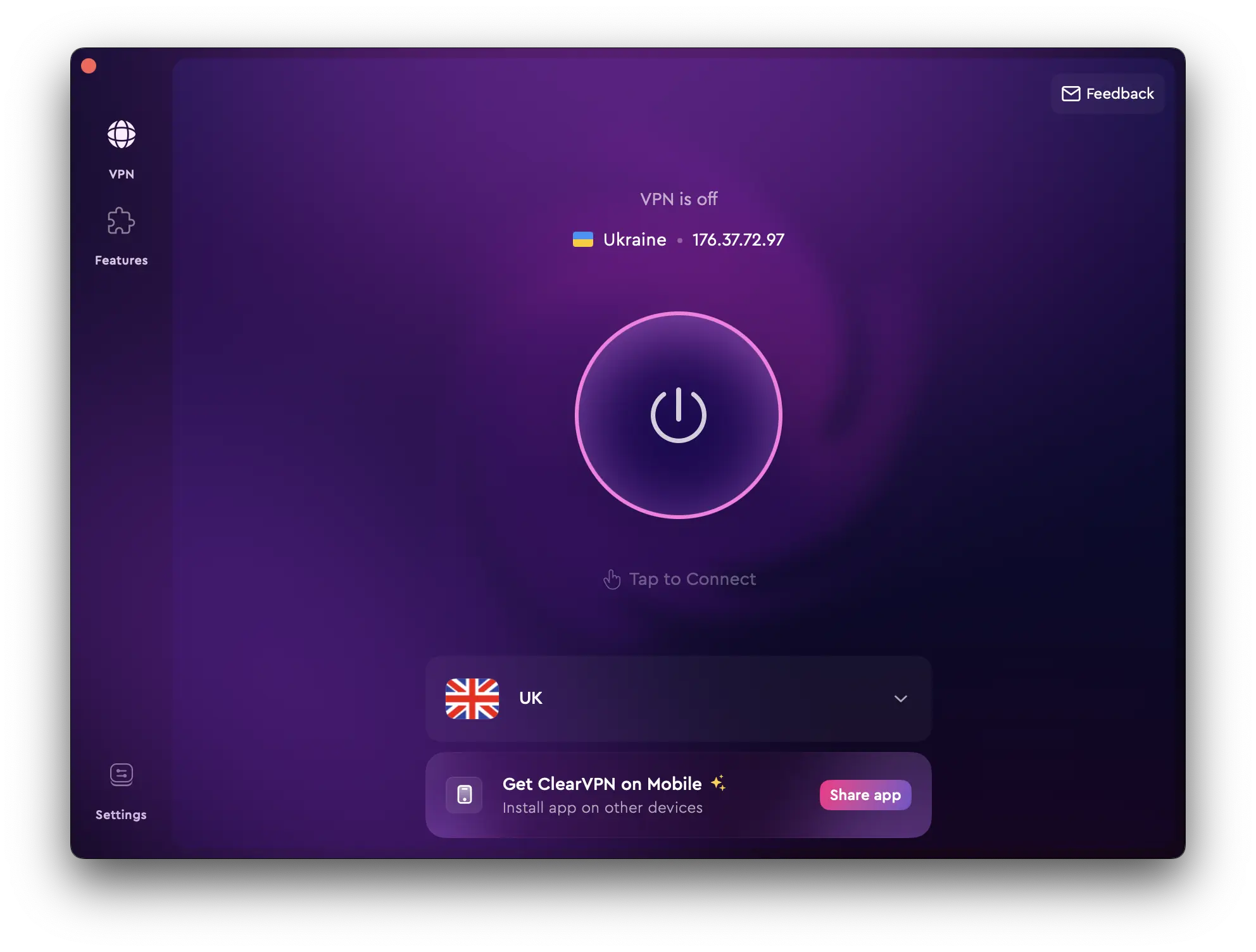Are you looking for information on FastPeopleSearch removal? In today’s digital age, personal information is more accessible than ever, often just a few keystrokes away. Websites like FastPeopleSearch aggregate public records and personal data, making it easier for anyone to find details about you.
In this quick guide, we will explore what FastPeopleSearch is, how it works, and most importantly, how you can protect your privacy.
Let’s jump in!
What is FastPeopleSearch?
First things first — what exactly is FastPeopleSearch? Simply put, it is a search engine for people that compiles public records and other information from many sources such as social media, marketing databases, and online directories. It claims to have data on millions of people in the United States and over 28 million in monthly site traffic.
Why might this be concerning? Well, the answer lies in the type of information that FastPeopleSearch collects. After all, public records are, well, public. The issue is how easy it is to access and make sense of this information with just a few clicks.
For example, let’s say you moved to a new city and updated your address on social media. If that information is now listed on Fast People Search, anyone with internet access can see it, including potential scammers or stalkers. This is just one example of how your personal information can be used against you.
How does Fast People Search work?
To better understand the risk posed by FastPeopleSearch, let’s take a closer look at how it operates. The website uses ‘web scraping’ technology to collect information from various publicly available sources. You can think of it like a virtual phone book or directory, but with more personal details.
Once the data is gathered, it is compiled into individual profiles that can be searched using the site’s search function. Users can also create an account and pay a fee to access more detailed information, such as email addresses, phone numbers, and even criminal records.
The site’s search function allows users to type in a name, location, or even a phone number and find associated records. This means that even if you have a common name, someone could potentially find your information by simply knowing your phone number or general location.
Where does FastPeopleSearch get its information?
Now that you know what Fast People Search is and how it operates, you may be wondering where exactly it gets its information. As mentioned earlier, the site uses ‘web scraping’ technology to gather data from various sources online.
This can include:
- Social media platforms like Facebook, Twitter, and LinkedIn
- Online directories like Whitepages and Spokeo
- Government databases such as court records or voter registration
- Marketing databases used by companies for targeted advertising
While some of this information may seem harmless, when combined and accessible in one place, it can present a significant privacy risk.
How to remove yourself from FastPeopleSearch
Suppose you’re concerned about the amount of personal information available on FastPeopleSearch. In that case, you’ll be glad to know that there are steps you can take to remove your information from the site.
- Opt-out of FastPeopleSearch: The first step is to remove your profile from the website itself. To do this, go to FastPeopleSearch’s opt-out page and enter your information. Keep in mind that this process may take a few days to complete, and you’ll need to opt-out again if new information is added.

- Limit your online presence: As mentioned earlier, FastPeopleSearch gathers information from various sources on the internet. By limiting your online presence, you can reduce the amount of personal information available about you. Consider adjusting your privacy settings on social media and not sharing sensitive information online.
- Contact third-party sources: Even if you remove your profile from FastPeopleSearch, it may still appear on other platforms that the site gathers information from. You’ll need to reach out to these sources individually and request to have your data removed.
Remove information from FastPeopleSearch with privacy services
If you don’t have the time or know-how to remove your information from FastPeopleSearch and other sources, you can consider using a data removal service. These companies specialize in removing personal information from various websites and databases for a fee.
A few good examples are:
- DeleteMe: Offers a subscription service with a team of experts who will remove your data from various websites.
- PrivacyDuck: Provides personalized privacy services such as removing personal information from sites like FastPeopleSearch.
One thing to note is that while these services can help remove your information from FastPeopleSearch, they cannot erase it entirely. The data will still exist elsewhere. However, it may be more challenging to access without a centralized profile on FastPeopleSearch.
How to protect your personal information from getting to FastPeopleSearch?
The best way to protect your personal information from ending up on FastPeopleSearch is to limit what you share online. Here are some tips to help keep your information safe:
- Be cautious about what you post on social media: It can be tempting to share every aspect of your life on social media, but remember that anything you post online could potentially end up on sites like FastPeopleSearch.
- Opt-out of data broker sites: besides FastPeopleSearch, there are other websites that gather personal information from various sources. A good example are websites like MyLife, Intelius, and BeenVerified. Consider opting out of these sites to reduce the chances of your information being collected.
- Regularly search for yourself online: it’s a good idea to conduct a search for your name, phone number, and other personal information regularly. If you find information about yourself that you don’t want to be public, you can take steps towards FastPeopleSearch removal as well as data removal from other sites.
Protect your personal information from FastPeopleSearch with a VPN
Another strategy is to use a VPN (Virtual Private Network) service when browsing the internet. A VPN encrypts your data and hides your IP address, making it harder for sites like FastPeopleSearch to track your online activity.
Using a VPN isn’t as difficult as you might think. Many providers offer user-friendly apps that make it easy to connect and protect your online activity. Take ClearVPN for example — a fast, secure, and easy-to-use VPN that anyone can set up and use in just a few simple steps:
- Download and install the ClearVPN app on your device. The app works on a PC, Mac, Android and iOS devices.
- Run the ClearVPN app and sign up for an account. Subscriptions start at $9.99 a month with a free 3-day trial, so you can test the service before committing.
- Log on to the VPN service, which will then take you to the VPN dashboard. From there, all you have to do is click/tap on the connect button located at the center of the screen.

That’s it! Now, every time you browse the internet using ClearVPN, your data will be encrypted and hidden from prying eyes, including websites like FastPeopleSearch.
FAQs
Is FastPeopleSearch Legal?
Yes, FastPeopleSearch is legal. It aggregates publicly available information from various sources. However, its legality does not mean it is free from ethical concerns or privacy issues. Always take steps to protect your personal data online.
Who owns FastPeopleSearch?
FastPeopleSearch is owned by a private company named PeopleFinders, Inc., which also operates other people search platforms like TruthFinder and Instant Checkmate. The company is based in the United States and focuses on providing access to public records and other personal information through its various services.
How does FastPeopleSearch get my information?
FastPeopleSearch collects your information from publicly accessible sources such as social media profiles, online directories, court records, and various other public databases. This aggregation of data allows it to compile comprehensive profiles, which are then made available for searches on its platform.
